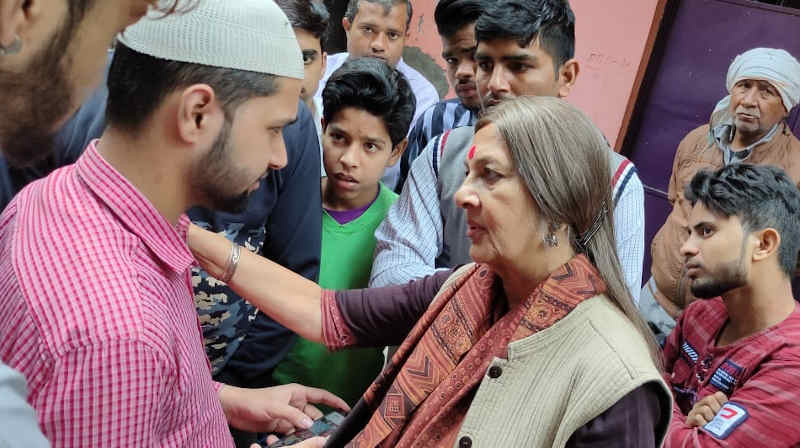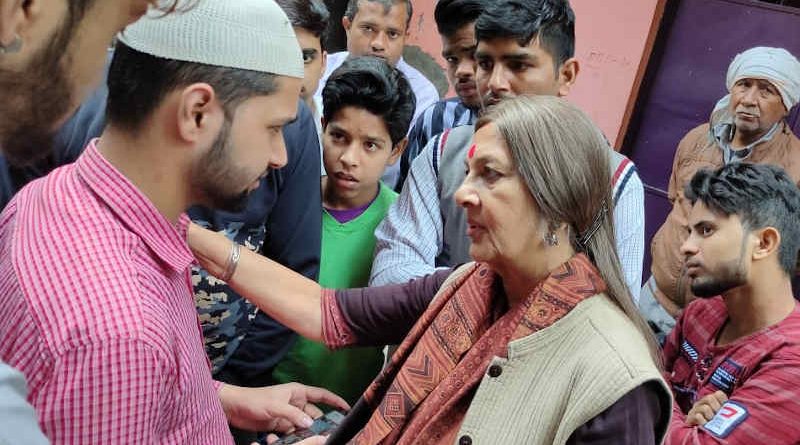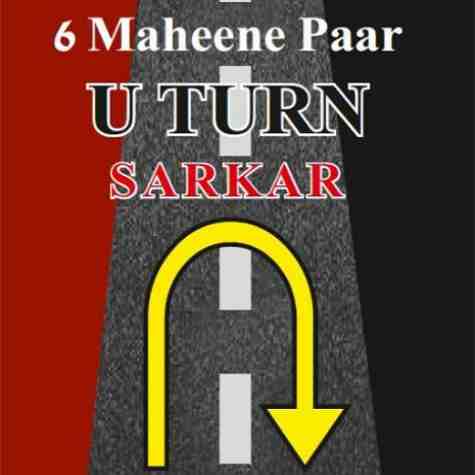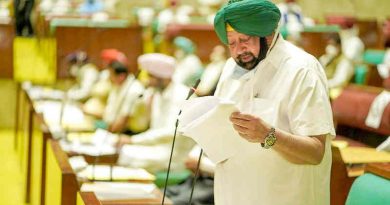U.S. Report Recommends Sanctions on India for Violations of Religious Freedom

The USCIRF report says that the U.S. Congress should continue to raise religious freedom concerns in the U.S.-India bilateral relationship.
The United States Commission on International Religious Freedom (USCIRF) has released its latest 2021 report that highlights continuous attacks on religious freedom in India under the Bharatiya Janata Party (BJP) government of prime minister (PM) Narendra Modi.
The report – released on November 5 – reiterates USCIRF’s recommendations to the U.S. Department of State regarding countries that should be designated as a Country of Particular Concern (CPC) or placed on its Special Watchlist (SWL) based on religious freedom conditions in 2020. The State Department designations are expected this month, November 2021.
For the 2020 reporting period, USCIRF has recommended four countries for CPC status that the State Department did not previously designate and 10 countries for the SWL that the State Department did not have on that list.
The additional countries USCIRF recommends for CPC designation include India, Russia, Syria, and Vietnam. The additional countries USCIRF recommends for the SWL include Afghanistan, Algeria, Azerbaijan, Egypt, Indonesia, Iraq, Kazakhstan, Malaysia, Turkey, and Uzbekistan.
In 2020, according to the USCIRF report, religious freedom conditions in India continued their negative trajectory. The BJP government of PM Modi promoted Hindu nationalist policies resulting in systematic, ongoing, and egregious violations of religious freedom.
The report adds that in early 2020 the passage of the religiously discriminatory Citizenship (Amendment) Act (CAA)—a fast track to citizenship for non-Muslim migrants from Afghanistan, Bangladesh, and Pakistan residing in India—led to nationwide protests against the CAA and spurred state and nonstate violence, largely targeting Muslims.
In February, the worst Hindu-Muslim mob violence in more than three decades erupted in Delhi. More than 50 people died and 200 others were injured, mostly Muslims. Mobs sympathetic to Hindu nationalism operated with impunity, using brutal force to single out Muslims, attack mosques, and destroy homes and businesses in majority-Muslim neighborhoods.
The Delhi Minorities Commission investigated and found that the violence and allegations of police brutality and complicity were “seemingly planned and directed to teach a lesson to a certain community which dared to protest against a discriminatory law.”
Citing Covid-19 concerns, in March police cleared the Shaheen Bagh protest in Delhi—a peaceful sit-in that had lasted more than 100 days and was led by Muslim and non-Muslim women protesting the CAA. In conjunction with a proposed National Register of Citizens (NRC) requiring all residents to provide documentation of citizenship, the CAA could subject Muslims, in particular, to “statelessness, deportation or prolonged detention.”
The northeastern state of Assam provides a chilling example: in 2019, a statewide NRC was implemented in Assam that ultimately excluded 1.9 million residents (both Muslims and Hindus) from the citizenship register. In some cases, according to the USCIRF report, families who had resided in India for generations were excluded; in other cases, a family member was included on the citizenship register while another was not.
The consequences of exclusion—as exemplified by a large detention camp being built in Assam—are potentially devastating and underscore concerns about the impact such laws may have if extended to other states or nationwide.
USCIRF highlighted this weaponization of citizenship laws and the potential for atrocities in a March hearing. Another set of policies raising significant concerns—and too often resulting in violence—are the efforts to prohibit interfaith marriages or relationships using the false narrative of “forced conversion.”
In late 2020, according to the report, Uttar Pradesh (UP), India’s most populous state, passed an ordinance voiding any marriage conducted for the “sole purpose of unlawful conversion or vice-versa.”
Similar legislation was approved in Madhya Pradesh (MP) and is being pushed in several states, including Haryana, Assam, and Karnataka. Hindu nationalist groups also launched inflammatory campaigns decrying interfaith relationships or engagements, including calling for boycotts and censorship of media depictions of interfaith relationships.
These efforts targeting and delegitimizing interfaith relationships have led to attacks and arrests of non-Hindus and to innuendo, suspicion, and violence toward any interfaith interaction.
In September, the Indian Parliament amended the Foreign Contribution Regulation Act (FCRA) to increase restrictions on nongovernmental organizations (NGOs), further stifling civil society and forcing religious organizations and human rights organizations, including those advocating for religious freedom, to shut down.
Amnesty International India closed operations in October after authorities froze its bank account. At the beginning of the Covid-19 pandemic, disinformation and hateful rhetoric—including from government officials—often targeted religious minorities, continuing familiar patterns.
The report describes that disinformation and intolerant content have emboldened intimidation, harassment, and mob violence in recent years, including numerous instances of violence mainly against Dalits, Muslims, Christians, Adivasis, and other religious communities.
Government action—including the acquittal of all individuals accused of demolishing the Babri Masjid mosque—as well as government inaction to address religious violence contributed to a culture of impunity for those promulgating hate and violence toward religious minorities.
At the same time, the government cracked down on those expressing dissent, including detaining and even accusing individuals of sedition for their actual or perceived criticism of the CAA and other governmental (in)actions.
According to the report, the United Nations (UN) officials expressed concern over the government’s repression of criticism.
The USCIRF report urges the State Department to designate India as a “country of particular concern,” or CPC, for engaging in and tolerating systematic, ongoing, and egregious religious freedom violations, as defined by the International Religious Freedom Act (IRFA).
USCIRF also recommends imposing targeted sanctions on individuals and entities responsible for severe violations of religious freedom by freezing those individuals’ or entities’ assets and/or barring their entry into the United States.
The USCIRF report says that the U.S. Congress should continue to raise religious freedom concerns in the U.S.-India bilateral relationship and highlight concerns through hearings, briefings, letters, and congressional delegations.


![CPI(M) leader Ms Brinda Karat leading the protesters in Delhi on August 26, 2020. Photo: CPI(M) [ File Photo ]](https://www.ramanmedianetwork.com/wp-content/uploads/2020/08/bkpro-390x205.jpeg)

